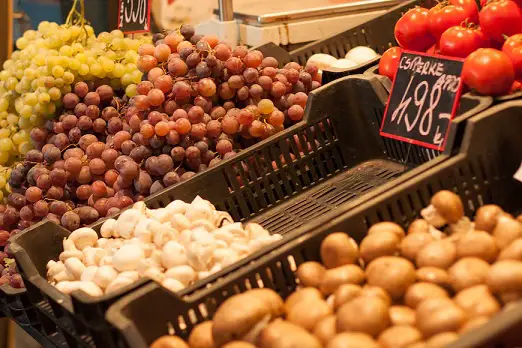On Tuesday, Reuters reported that amid record food price inflation and soaring energy costs in Britain, now an unprecedented shortage of fresh vegetables may force UK consumers to endure empty supermarket shelves in the neat future.
For months UK shoppers have been enduring a scarcity of fresh food, with many stores rationing sales of fresh tomatoes, cucumbers, peppers, and some fruits, due to shortages in supply. Harvests in Europe and North Africa have been disrupted by poor weather conditions, while costs for produce from other key markets like Spain have seen prices soar due to inflation, according to the report.
In the winter, Britain imports roughly 95% of its tomatoes, according to the British Retail Consortium. According to data from the tax office, the UK bought 266,273 tons of vegetables in January, which was the smallest amount for that month going back to 2010, when the nation’s population was 7% smaller than now.
As supplies are threatening to run out completely, UK consumers are dealing with record levels of grocery price inflation, which has grown 17.5% in the four weeks to March 19th.
According to experts the inflation is a combination of a supply squeeze driving costs higher, and Britain’s exit from the EU generating logistical challenges when it comes to importing vegetables in to the island, as extra paperwork and bureaucracy discourage suppliers outside the nation.
At the same time, domestic farmers are battling higher energy costs which have forced them to reduce the use of energy-intensive greenhouses.
Minette Batters, president of the National Farmers Union, said in an interview with Reuters, “There are real risks that empty shelves may become more commonplace.”
The union says that this year’s fresh vegetable production will be the lowest seen since 1985, in large part because the government decided to exclude agriculture from a government program which provided government assistance to companies which were being impacted by high energy costs.
The farmers also warn that the present shortages of tomatoes will extend to other crops shortly, including cauliflower and carrots.

